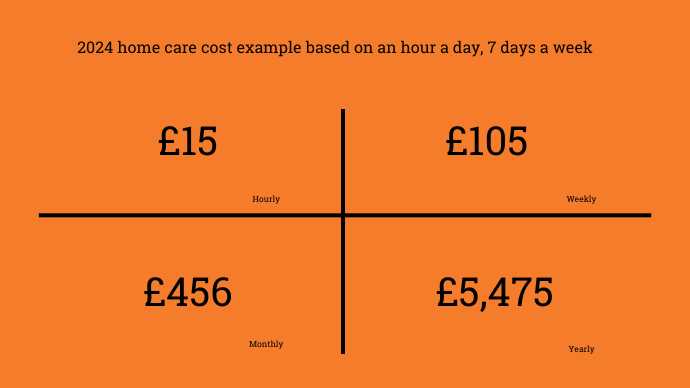Autumna has been so helpful in providing information for us to consider regarding [a] home care for a relative. They have followed up with us and provided additional information when requested. We are still in the process of going through the options but thank you for all your help so far!
Claire, AmrothWelcome to Autumna
We are here to help you find home care that's right for your needs
Please use the search box above to find home care providers that operate in your area - or click below and we'd be pleased to put together a free shortlist of home care providers for you. You can also chat and call us to speak confidentially with our friendly team.
We are exceptionally proud to bring you the UK's largest and most detailed directory of care for older people, and to offer you a truly independent and free service.
Receive a Home Care Shortlist for Free!
Tell us a little about your needs and we'll send you a bespoke shortlist of Home Care Providers! Click the button below to begin, it takes just a few minutes.
Looking for around-the-clock, full-time, care at home?
If so, please search our Live-in Care directory.
What is home care?
Many elderly people experience a better quality of life as a result of receiving regular assistance from a home care professional.
Home care workers provide support with everyday tasks, medical assistance, personal hygiene, food preparation and eating.
Maintaining independence in a much-loved home can be a cost-efficient way of receiving care rather than facing the upheaval of moving into a care home.
Who is home care for?
Usually, though not always, this type of care is sought by people who are fairly independent but need assistance with chores, maintaining their home and changing urostomy and colostomy pouches.
You might not need everyday assistance from a paid carer but might benefit from hourly help with the things that are beginning to bother you, like changing your sheets, washing your kitchen and bathroom or personal grooming.
Alternatively, if you do require round-the-clock care from home from a live-in carer, Autumna can help.

What types of home care services can I access?
Domiciliary care: Also known as hourly care, this involves a carer attending someone's home to assist at specific times of the day.
Live-in care: Live-in care is a great option for anyone who needs 24-7 support. A live-in carer can help with daily tasks and complex needs.
Respite home care: Usually requested to give current unpaid carers a break or because the person seeking care needs help with recovering from an operation or illness.
What services can a home carer help me with?
Companionship: Conversation, gardening, pet care, appointment scheduling, assistance with getting to appointments and social activities.
Food: Shopping, packing away, cooking, assistance with eating and cleaning the kitchen/dining area.
Household: Specific room cleaning i.e. bathroom, laundry, dusting, hoovering, organising and tidying.
Mobility: Hoisting, transferring, assistance with going to the toilet, turning, stretching.
Personal: Oral medication, hair washing, bathing, drying hair, shaving, hair styling, dressing
Can I get specialist nursing support from a home carer?
Yes, while not every home carer provides nursing or specialist care, many do. You can use the Autumna home care search portal to filter for your specific needs which may include:
- Alcohol/drug misuse
- Alzheimer's
- Cancer care
- Catheter care
- Challenging behaviour
- Dementia
- Hearing impairment
- Learning disability and neurodiversity (e.g. Autism)
- Mental health
- Overnight care
- Palliative care
- Parkinson's disease
- PEG Feeding
- Rehabilitation post-surgery
- Sight impairment
- Speech impairment
- Stoma care
- Stroke
- Wound dressing
What are the benefits of home care?
Being able to receive appropriate care without having to move can be a cost-efficient alternative that doesn’t require the upheaval that many older adults would rather avoid.
If you feel you or a loved one may require home care, Autumna can help save you the time and stress typically involved by sending you a FREE personalised list of home care services. Click here to get your free list.
How do I find a home care service near me?
Autumna is the UK’s most detailed directory of elderly care and retirement living options, listing 12,376 home care providers registered with the CQC.
We’re an impartial service and don’t handpick the home care options on our website, instead, we list ALL of them so that you can make an informed choice for yourself.
Home care costs in 2024
What are the average home care costs in the UK?
An assessment of the home care providers on the Autumna website shows an average hourly rate of around £22-£23/hour for home care across the country.
You may have thought the hourly rate for a home carer would be slightly higher in London, but actually, that isn’t the case. If anything, it’s the more rural areas – where there’s perhaps less competition between home care agencies - that the prices can edge up a little.
Within each geographic area of course there can be large variations in price. If you were to search for home care in Manchester on the Autumna directory for example, you’d find home care agencies that charge £30+/hour and others charging below £15.
As an example, if you needed an hour a day, for 7 days a week and your hourly home care cost was £15, your costs would be:

For specific home care costs in your area, search on Autumna or contact an elder care expert at 01892 33 53 30.
Why does the cost of in-home care vary in the UK?
Well, there can be a whole host of reasons, but a lot will depend on the level of care that the agency can give. Not all for example can offer specialist nursing care at home.
Staffing costs will always be higher if the home care agency employs qualified nurses versus an in-home care worker who provides companionship and household help.
Who pays for my home care?
- The person being cared for (or their family) pays the full cost of their care, sometimes using the equity in their home, savings from a cash ISA, through the sale of assets or pension income. This is called 'self-funding'.
- The local authority pays for some or all of the care.
- Sometimes the NHS may also contribute to the cost of all or some of the care.
If you have savings worth over £23,250, you’ll be classed a self-funder which means you won’t be eligible for local authority support. This threshold is due to rise to £100,000 from October 2025.
Am I entitled to funding support for my home care?
You may be entitled to funding support for home care if you have ongoing medical needs, though that will depend on your circumstances.
If you’re over 65, required to pay for your care based on a means test, yet require day-to-day assistance, you may be eligible to apply for state benefits such as Attendance Allowance.
If you’re under 65 and require help with day-to-day activities, you may be entitled to PIP (Personal Independence Payment).
Am I eligible for PIP to pay for home care services?
PIP comprises two components:
Daily living: If you need help with day-to-day tasks
Mobility: If you require assistance with getting around
To be eligible for PIP payments you’ll need to be under the state pension age and have an ongoing medical condition or disability, making day-to-day life challenging.
The application process begins by you calling the PIP number on 0800 917 2222. Once you’re through, you’ll speak to an adviser who will explain the in-person or online assessment and then you’ll be sent an application form to complete within 1 month of the date on the letter or email.
Am I eligible for Attendance Allowance to pay for my home care?
Attendance Allowance can be used to pay towards your cost of home care if you meet the eligibility criteria.
You must:
- Be over the state pension age
- Need great care and supervision as a result of an ongoing disability, medical condition or illness
To apply, you’ll need to call the Attendance Allowance helpline on 0880 731 0122 or download a claim form through GOV.UK.
It might be useful for you to know that from April 2024, Attendance Allowance will be worth the following:
Higher rate: The higher rate will increase from £101.75 to £108.55 a week
Lower rate: The lower rate will increase from £68.10 to £72.65 a week
Can I use my DWP cost of living payment to pay for home care?
If you receive benefits including universal credit, income-based jobseeker’s allowance (JSA), income-related employment and support allowance (ESA), income support, pension credit, child tax credit and working tax credit, you may be eligible for the final DWP cost of living payment that is due to be paid between February 6th and February 22nd, 2024.
Home Care FAQS
Do dementia sufferers have to pay for their home care?
Dementia care in the UK is not free but there may be financial support that you, or someone you love, may be eligible to apply for.
To understand the different ways to pay for home care services for dementia, and the amount you might be expected to pay, you’ll need to contact your local authority and ask for a care needs assessment.
After the assessment, the local authority will decide who will pay for the care based on:
- a financial assessment of your capital and income.
- the type of care and support that’s needed – this could be home care or a care home.
- where you (or the person needing care) live and what care is available in the area.
Are home care agencies registered with the CQC?
The CQC monitors companies supporting person-centred care such as grooming, showering, continence care, and dressing but they do not regulate home care agencies that assist with shopping, cleansing or other household chores.
What’s the difference between domiciliary care vs. live-in care?
Domiciliary care usually involves a care worker coming to your home and providing assistance for a specified time, for example, an hour a day.
A live-in carer stays with you in your home and depending on the agreement, they may be there for you during the day or night. To be able to accommodate a live-in carer, you’ll need a suitable spare bedroom for them to stay in comfortably.
How do I find a caregiver that I can trust to look after me?
Finding the right carer with the personality and expertise to help you with your needs is a job worth doing right. Spending time with a care worker is the best way to understand whether they can provide you with what you’re looking for but it’s always a good idea to compare home care options on Autumna, do your research and check reviews before you make a decision.
Testimonials
Helping you to find Home Care
Free Expert Advice
Specialist expert advice for arranging elder care
We're talking about
From the blog

Older Persons Care Advice
Annuities for care home fees: Everything you need to know
October 23rd, 2025
Learn how annuities for care home fees provide guaranteed income, financial stability, and peace of mind when planning for long-term care costs.

Older Persons Care Advice
Care options for the elderly: What is right for you?
October 17th, 2025
Discover care options for the elderly that fit your needs, from home support to residential care, helping you plan confidently for the years ahead.

Older Persons Care Advice
Are next of kin responsible for care home fees
October 17th, 2025
Find out the truth about care costs. Are next of kin responsible for paying care home fees? Learn who pays, exceptions, and how to plan ahead.



